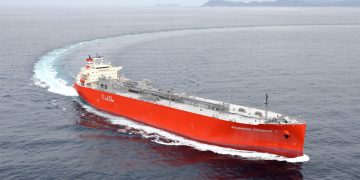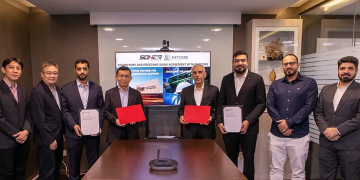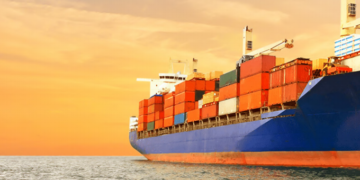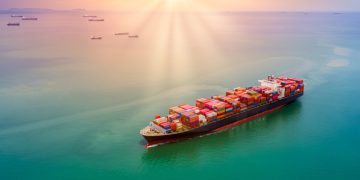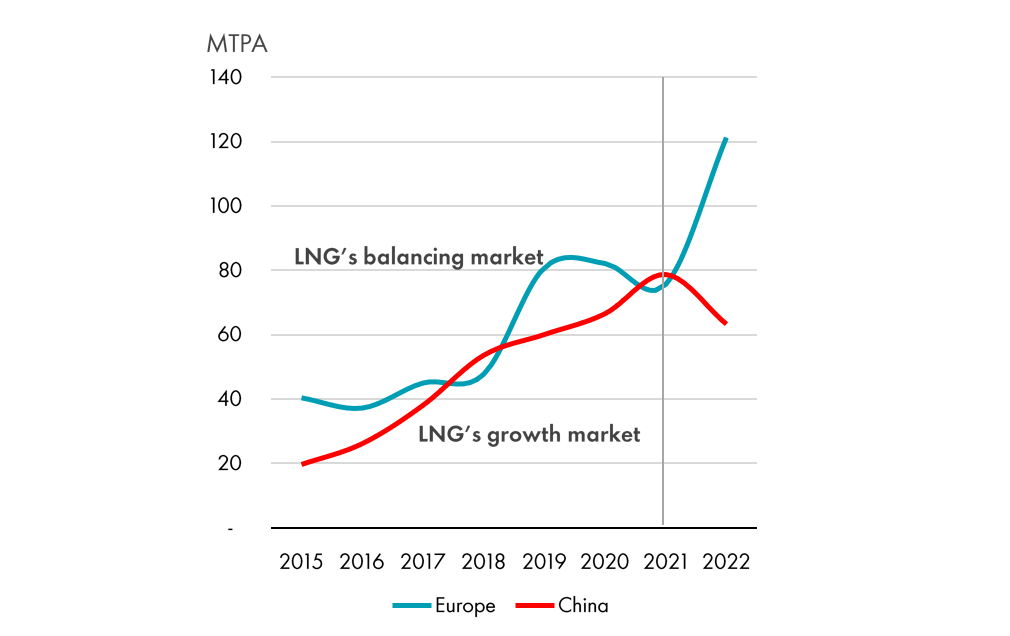American Bureau of Shipping (ABS) delves into the intricate LNG (liquified natural gas) value chain and explores dominant trends in LNG shipping.
According to ABS, while the specific incentives and involvement of financial institutions may vary by region, the overall trend is toward supporting and incentivizing blue and green LNG through regulations, policies, green financing options, and involvement from international financial institutions. Furthermore, ABS explores market trends which go are as follows:
Fleet size
In recent years, the LNGC fleet has witnessed significant growth, driven by the expansion of LNG production and the development of new liquefaction plants in various regions. This growth is expected to continue as demand for LNG increases, particularly in Asia, where countries like China, Japan and South Korea have been major LNG importers. The orderbook reflects this trend, with a substantial number of LNG carriers being built to cater to the anticipated demand from these markets.
Pricing
In terms of trends in LNG sales contracts, there is an increasing focus on pricing mechanisms that are more gas-linked rather than oil-linked. This shift is driven by the desire for greater transparency, fairness and alignment with natural gas market fundamentals. Gas-linked pricing allows for a more direct reflection of supply-demand dynamics in the LNG market, therefore, reducing exposure to oil price fluctuations and geopolitical factors.
Another trend is the emergence of pricing review clauses in LNG sales contracts. These clauses enable periodic re-evaluation and potential adjustment of LNG prices based on specified market conditions. This mechanism allows for a degree of flexibility and adaptability to evolving market dynamics, ensuring that contract prices remain reflective of prevailing market conditions.
Supply and demand
During the last decade, the global supply and demand trends have had a significant impact on LNG prices. The LNG market has witnessed a shift from a supply-driven market to a more demand-driven market, with increasing competition among suppliers. This change in dynamics has put downward pressure on LNG prices.
The global LNG market has experienced a surge in liquefaction capacity, particularly in the United States and Australia. This increase in supply, combined with slower demand growth in certain regions, has created an oversupply situation which leads to lower prices.
The recent trend of global LNG supply and demand has prompted a more flexible approach in LNG pricing. Buyers are increasingly seeking flexible pricing arrangements that are linked to gas indices or market fundamentals. This allows for a more transparent and responsive pricing mechanism that reflects current market conditions.
In terms of the impact on LNG prices, the oversupply situation has resulted in a more competitive market, leading to a downward pressure on prices. Pricing mechanisms that were predominantly oil-linked in the past are being revised to ensure a closer correlation between LNG prices and natural gas market fundamentals. This trend is driven by the desire to eliminate the disconnect between oil prices and gas prices which can be influenced by different factors.
On the other hand, emerging trends such as the rise of LNG spot trading and the development of LNG trading hubs are contributing to price transparency and liquidity in the market. Spot trading allows for more short-term price discovery and flexibility while trading hubs provide a central platform for buyers and sellers to trade LNG on a more standardized basis.
In summary, the LNG market is witnessing changes in contract types, pricing mechanisms and transportation agreements. Long-term contracts provide stability but may limit flexibility, while short-term and spot contracts offer more adaptability to market conditions. Pricing is shifting towards gas-linked formulas, driven by the need for transparency and alignment with natural gas market fundamentals.
The recent global supply and demand trends, including increased liquefaction capacity and shifting demand patterns, have impacted LNG prices, therefore, leading to a more competitive market and pressure on prices. However, market participants are adapting to these changes by seeking more flexible contracts and pricing arrangements that reflect current market dynamics and allow for optimization of LNG procurement strategies.













